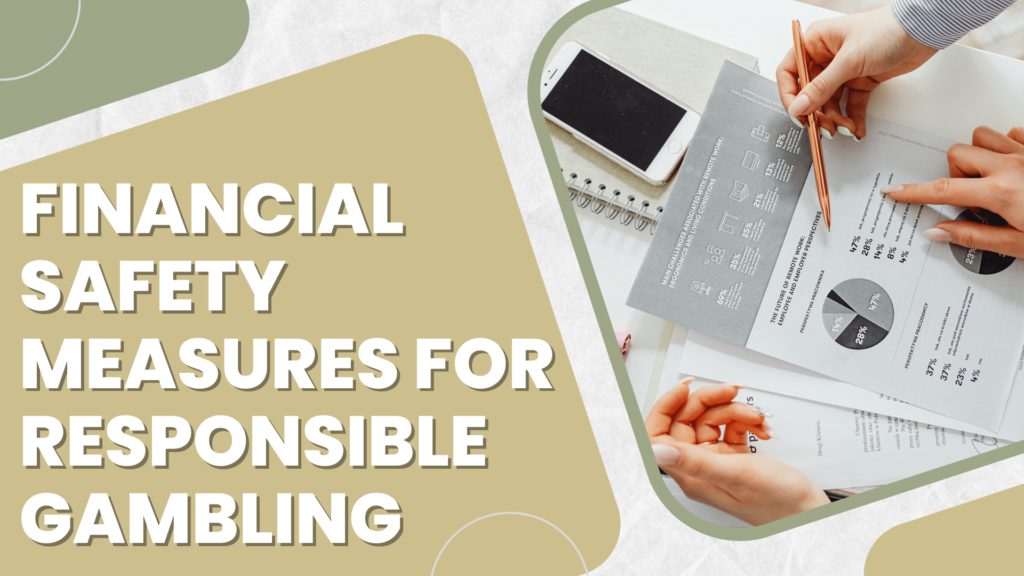
The concept of Responsible Gambling is some kind of protector against negative consequences that can develop in vulnerable players. According to statistics, this problem is quite acute in the world of gambling. For example, in the United States, from 1.2% to 6.2% of the population have various forms of addiction, that is about 20 million people.
At the same time, the largest share falls on slots (50.2%) as games with a high level of engagement. The gambling problem impacts the psycho-emotional sphere of a person (apathy, high irritability, problems with socialization, depression, etc.) and his financial situation. Players often go to desperate measures, even crimes, to continue playing.
According to stats, 3% of US-based problem players have more than $300,000 in gambling debts. This is also a certain burden for the government. For example, in the USA, spending on social support for people with addiction is about $30,000/year. Financial security problems in gambling play no less a role than psychological ones since they potentiate each other, closing a vicious circle.
Bankroll Management
The concept of bankroll refers to the funds you have available to play. It is necessary to consider bankroll management carefully to get the most enjoyable gameplay and avoid problems with non-compliance with Responsible Gambling rules. Use no more than 5% of your bankroll per game.
Also, record your bets, losses and wins to adjust your strategy. You may be tempted to increase the bet size to compensate for losses. However, this often leads to even greater financial problems. Therefore, perceive the loss not as a tragedy but as part of the overall experience. Remember to take breaks to switch to another activity, unwind, and maintain concentration.
Self-Exclusion Programs
Self-exclusion programs are aimed at creating a physical barrier between players and casinos. Self-exclusion programs can be either local (for a specific casino) or global, such as GamStop. In the first case, you need to contact the customer support service, describe your situation, and select the period during which your account will be blocked.
In the second case, you must register on the official website, undergo verification, and wait until your data is transferred to all casinos supporting this program. For example, GamStop is currently active for more than a hundred UK-based casinos and can boast of more than 400,000 registered users who have chosen multiple self-exclusion periods: 6 months, 1 year or 5 years. Along with free GamStop, there are resources like GamBan or NetNenny that have their own pricing plans but also offer more opportunities for self-exclusion scheduling, gambling content filtering, Parental Control, etc.
Given restrictions on access to gaming sites and filtering triggers, self-exclusion programs directly impact gamblers’ financial protection. For those seeking an alternative to traditional casinos, especially gambling sites not blocked by GamStop self-exclusion, many services also offer links to additional sites that help deal with financial problems. For example, GamStop offers links to StepChange, Money Wellness, Citizens Advice, and other services for debt support.
Budgeting and Tracking Tools
A strategic approach and analysis is the key to success in gambling and long-term stay in the industry without negative consequences. For some gamblers, it is difficult to allocate a budget due to a lack of time or skills. Here, modern technologies and tools will help you analyze your bankroll, record everyday transactions, calculate acceptable amounts for deposits, and so on.
Before using the service, you should test several options and choose the one that is most convenient for you. The decisive point may be the free (Mint, GnuCash) or paid (Empower, Goodbudget) format of use and the ability to install on mobile devices. During the test, study the service’s features, including payroll tracking, support of the “envelope method”, analysis of net worth, and so on.
Consider certified services, such as Yolt, which is licensed by the Dutch Central Bank and recognised by the FCA. All services work based on the input data you provide and automatically calculate allowable gambling expenses, limits that should not be exceeded, and so on. All this is accompanied by convenient graphics for better visualization.
Identifying Problematic Behavior
Among the most significant signs of gambling problems are the following.
- Using games to restore emotional balance and reduce anxiety.
- Lack of interest in other activities.
- Lying or concealing gambling activity.
- Refusal of basic needs for the sake of gambling.
- Irresistible desire to play on larger sums than you can afford.
- Psycho-emotional disorders in the form of headaches, depression, apathy, or irritability.
- Willingness to commit crimes to continue gambling activity.
As for the financial side of the problem, it is worth paying attention if a player borrows money for the sake of playing or stops comparing the income with the amounts he bets. Selling valuables for the sake of betting is also a red flag, as well as not paying enough attention at work.
If a player has at least one of the above signs, this means it is necessary to set deposit limits and not exceed them. If a person cannot independently control himself, then activating a self-exclusion program makes sense.
This is critical to break the vicious circle and also reduce the concentration of gambling triggers (for example, casino advertisements). Accompanying psychological assistance (meetings of anonymous players, hotlines, etc.) will enhance the effect and help speed up rehabilitation.
Setting Financial Limits
You can limit bet sizes, losses, and deposits at all modern casinos and bookies. You must be a registered player with a verified ID to get started. Next, contact the casino’s or bookie’s customer support service via any available communication channel, describe your situation, and ask to set a certain limit.
If you decide to set a deposit limit of $1,000 and further decide to increase it to $2,000, you will have to wait up to 24 hours until the site’s experts check the info. But if you decide to decrease the sum to $500, the limit will be activated immediately.
Gambling as Entertainment, Not Investment
One of the key rules is to take gambling solely as a source of entertainment. At the same time, some players (especially those lucky enough to get easy money at the very beginning) may try to play to earn money.
This is a dangerous approach since, in most cases, gambling is about luck: slots, video poker, roulette, baccarat and other games are determined solely by the RNG and not by your skills and abilities. The only exception to this rule is live dealer poker. Although, unlike playing at a land-based casino, your opportunities to apply strategies and bluff online are extremely narrowed.
No strategy gives you a 100% guarantee of winning. Ignoring this rule can lead to significant financial problems, desperate attempts to compensate for losses with high bets, and the development of gambling addiction. Seeking help through resources like Gamblers Anonymous or reading books about gambling addiction is a step towards breaking the cycle of relying solely on luck and taking control of one’s psycho-emotional state.
Conclusion
Financial problems are among the first to be experienced by individuals with gambling addiction. Violating deposit limits, chasing losses, perception of gambling as a source of income, etc., can spoil the gaming experience and lead to loss of funds. To avoid this, you must allocate the sum you can spend on games per day or week and not exceed it. This is where various budget-tracking tools come in handy. For weak-willed players, it may be difficult to discipline themselves, so they set limits on the deposit, know how to stay safe online, bet amount, and loss directly on the gaming website. In this case, it is worth using self-exclusion programs that help create a barrier between players and casinos, eliminate triggers and speed up rehabilitation.




















